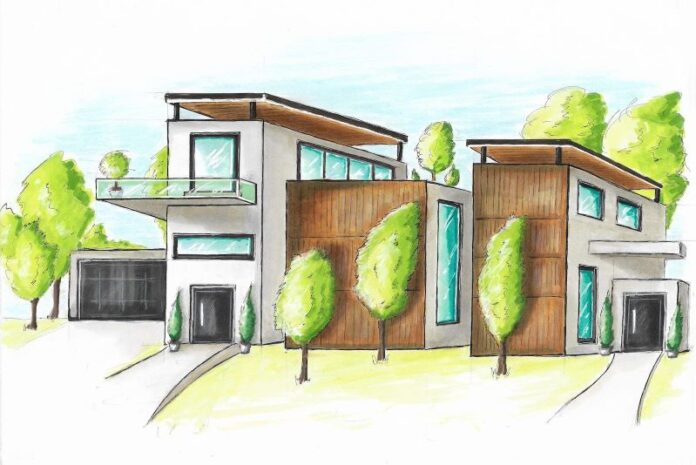Steve Puterski
North County Pipeline
It’s no different for Vista and Del Mar as those cities each addressed the issue this month. In Vista, Councilman Dan O’Donnell pitched allowing ADUs to incorporate up to three bedrooms and pre-approved floor plans, while the Del Mar City Council approved incentives to add low- and very-low-income units into their housing stock.
In Del Mar, one of the goals is to build 15 affordable units by allowing the construction of an ADU, which then the homeowner can then add 500 square feet to their existing structure.
ADUs can be built quicker than a typical development, O’Donnell said, but the city’s current ordinance only allows for up to two bedrooms. State law allows ADUs to be up to 1,200-square feet.
O’Donnell said many people are already using any additional rooms, which are technically a parlor or office, as a third bedroom, so the ordinance should match the use.
“We need to increase our stock for housing,” he said during the Dec. 12 council meeting. “I think a lot of families don’t realize that a two-bedroom can be actually utilized as a three-bedroom, or that we should make it available to be utilized as a three-bedroom.”
Vista ADUs
Another plan of attack for the city is to use pre-prepared floor plans. The council directed staff to review Encinitas’ pre-prepared plans as Encinitas has options for studio, one bedroom (one bathroom), two bedroom (two bath) and three bedroom (three baths) a homeowner or builder can choose.
The council also discussed creating their own, although it would cost at least $50,000 for original plans and $10,000 to modify. However, the pre-prepared plans, O’Donnell said, would provide significant cost savings as those looking to build would be charged a reduced fee, between $250-$300, compared to the typical cost of about $8,500 to submit plans.
O’Donnell said the nominal fee could then be reallocated to other programs, or even directed toward the city’s affordable housing funding to help supplement those goals.
“It saves them a ton of money while also allowing us to raise fees for any project we may want to do,” he added. “In the end, it benefits everybody. It saves them a ton of money, it allows us to have another source of revenue to go toward future projects, which seems like a win-win all around.”
City Manager John Conley said the pre-prepared plans are the cheapest option for the city but will bring back a range of options next year for the council.
Mayor John Franklin went further saying the city could allow architects to submit plans for pre-approval, pay a one-time reduced fee and license out their plans to those in the market for an ADU. He agreed with the city providing its options as well.
Franklin and O’Donnell said the pre-approved plans would significantly reduce the approval timeline, with Franklin saying in a separate interview it could be as much as six months. Currently, it takes between 12-18 months for the city to approve the plans, which is known as “plan check.” He said Vista has one of the fastest processes in the county but said this new model would be even faster for ADUs.
Plan check has city staff, such as engineers, review in detail development plans to ensure each element meets building codes, earthquake requirements and more. Franklin said a pre-approved plan would require a one-time review from staff, thus reducing the waiting period for those looking to build and getting units into the market faster.
“I see a free market solution,” Franklin asked. “Let’s have a few off-the-shelf ones, but why wouldn’t you open it up to the marketplace? It’s a massive cost savings and time savings.”
Councilwoman Corinna Contreras said she supports the item but didn’t agree with charging a fee. She said the city should stick with a product accessible to the public.
Also, she said the city doesn’t need to recuperate any fees because the city will be seeing the public helping it do the job of building housing.
As for permitting ADUs, the typical timeline is about three months but can be longer as there are staffing issues with planning and building departments, he said. Conley said over the next several months he will look at those departments to address those concerns and to speed up the process.
Del Mar incentives
The council approved the incentive program, 4-1, with Councilwoman Terry Gaasterland opposed. She said while the idea is great, she fears the execution will be stagnant.
The program incentivizes extra units deeded as low- or very-low-income, according to city records. The California Department of Housing and Community Development “expects” 15 units, Gaasterland said.
For example, a R-2 zone one ADU deeded affordable can be built on the property and the homeowner can add 500 square feet to their existing home, according to the city. This program has been in place for at least one year and has only generated one ADU, Gaasterland said.
Due to the low volume, HCD pushed back on Del Mar for more incentives.
An apartment building can deed one unit as affordable and be allowed to build an ADU in addition to the current structure, Gaasterland said. If the unit is deeded for 30 years, it’s a 1:1 unit ratio and a 50-year deed pushes it to a 1:1.5 ratio, according to the staff report.
However, there are some restrictions such as new structures must go through design review. The challenge, Gaasterland said, many new projects are not required to go through design review by new state laws.
“Accessory dwelling units are not allowed to go through design review, so can we even stipulate design review on these?” she asked. “In theory, it sounds great. In reality, it’s fraught with unanticipated pitfalls.”



